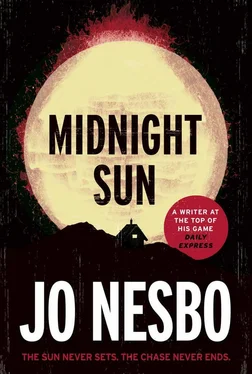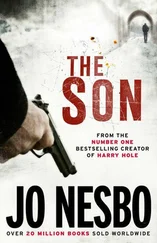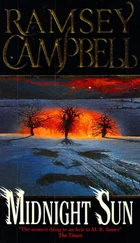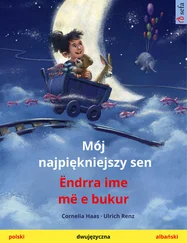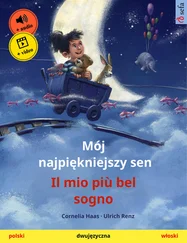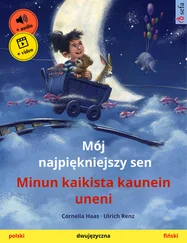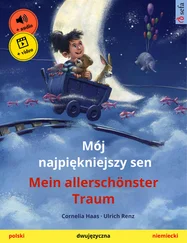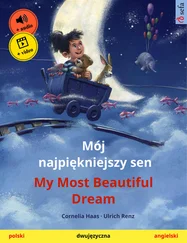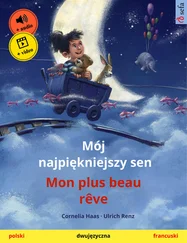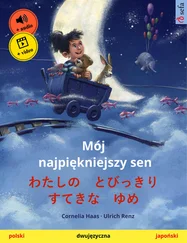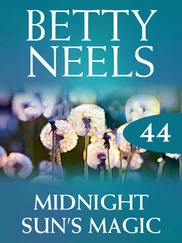I had spent years living on my own in Oslo, but after just three days here the isolation felt like a sort of pressure, a quiet sobbing, a thirst that neither water nor moonshine could sate. So as I stared out across the empty plateau with the grey, overcast sky above it, and no sign of the reindeer, I looked at the time.
The wedding. I had never been to a wedding before. What does that say about a thirty-five-year-old bloke? Friendless? Or simply the wrong friends, the sort of friends no one wanted, let alone wanted to marry?
So yes, I checked my reflection in the bucket of water, brushed my jacket down, tucked the pistol in my waistband at the small of my back, and set off towards Kåsund.
I’d got far enough to be able to see the village below me when the church bells started to ring again. I speeded up. It had got colder. Maybe because it was cloudy. Maybe because the summer can come to an end up here quite suddenly.
There wasn’t a soul in sight, but there were several cars parked on the gravel road in front of the church, and I could hear organ music inside. Did that mean that the bride was on her way to the altar, or was it just part of the warm-up? Like I said, I’d never seen a wedding before. I looked at the parked cars, to see if she was sitting in one of them waiting to make her entrance. I noticed that the number plates all had a Y at the front, to indicate that they were from Finnmark. All apart from one, a big, black station wagon that had no letter before the number. From Oslo.
I went up the steps to the church and cautiously opened the door. The few pews were full, but I crept in and found a place on the one at the back. The organ music paused, and I looked ahead. I couldn’t see any bridal couple, so at least I was going to catch the whole thing. I could see a number of Sámi jackets in front of me, but not as many as I’d expected to see at a Sámi wedding. On the front pew I could see the backs of two heads I recognised. Knut’s unruly red hair, and Lea’s shimmering black cascade of locks. Hers was partially covered by a veil. From where I was sitting I couldn’t see much, but presumably the bridegroom was sitting up at the front near the altar with his best man, waiting for the bride. There was a bit of murmuring and coughing and crying. There was something rather appealing about such a reserved, sombre congregation that was still so easily moved on behalf of the bridal couple.
Knut turned round and looked at the gathering. I tried to catch his eye, but he didn’t see me, or at least didn’t return my smile.
The organ started up again, and the congregation joined in with astonishing gusto. ‘ Nearer, my God, to Thee... ’
Not that I knew much about hymns, but that one struck me as an odd choice for a wedding. And I had never heard it sung so slowly. The congregation stretched out all the vowels to breaking point: ‘ Nearer to Thee, e’en though it be a cross that raiseth me. ’
After something like five verses I closed my eyes. Possibly out of sheer boredom, but possibly because of the feeling of security from being among a crowd after so many days of watchfulness. Either way: I fell asleep.
And woke up to the strains of a southern accent.
I wiped the drool from the corners of my mouth. Perhaps someone had nudged me on my bad shoulder — it was aching, anyway. I rubbed my eyes. Saw little yellow crusts of sleep on my fingertips. I squinted. The man speaking in a southern accent up at the front had glasses and thin, colourless hair, and he was wearing the cassock I had slept under.
‘. . but he was also someone who had weaknesses,’ he said. Weaknesses . ‘The sort we all have. He was a man who was capable of fleeing from confrontation when he had sinned, who lost his bearings and hoped problems would simply vanish if he stayed out of the way long enough. But we all know that we can’t hide from the punishment of the Lord, that He will always find us. But he is also one of Jesus’s lost sheep, one who has strayed from the flock, one whom Jesus Christ wants to rescue and save with his mercy if the sinner prays for the forgiveness of the Lord when death comes.’
This wasn’t a wedding sermon. Nor was there any bridal couple at the altar. I sat up in the pew and craned my neck. And then I saw it, right in front of the altar. A large coffin.
‘Even so, perhaps he was hoping to forget his past when he set out on his last journey. That his debts would expire, that a line would be drawn under his sins without him having to pay. But he was gathered in, the way we shall all be.’
I glanced at the exit. Two men were standing on either side of the door with their hands folded in front of them. They were both staring at me. Black suits. Fixers’ outfits. The station wagon from Oslo outside. I had been tricked. Mattis had been sent up to the cabin to lure me from my stronghold and down into the village. To a funeral.
‘And that is why we stand here today with this empty coffin...’
My funeral. An empty coffin waiting for me.
Sweat broke out on my forehead. What was their plan, how was it going to happen? Were they going to wait until the ceremony was over, or was I going to be despatched in here, in front of everyone?
I slipped one hand behind me and made sure that the pistol was there. Should I try to shoot my way out? Or cause a scene, stand up and point at the pair by the door, shouting that they were killers from Oslo, sent by a drug dealer? But what good would that do if the villagers had come here voluntarily to attend the funeral of a stranger from the south? The Fisherman must have paid the villagers; he had even managed to get Lea to go along with the conspiracy. Or, if what she said was true, and they didn’t pay too much heed to earthly possessions here in the village, maybe the Fisherman’s people had started a rumour about me, saying I was the devil incarnate. God knows how they’d managed it, but I knew I had to get away.
Out of the corner of my eye I saw one of the two fixers turn to the other and mutter something. This was my chance. I grabbed the handle of the pistol and pulled the gun out from my trousers. Stood up. I had to shoot now, before they had time to turn towards me, so I wouldn’t have to see their faces.
‘. . for Hugo Eliassen, who set out to sea alone even though the weather was bad. To fish for pollock, he said. Or to flee from his unresolved deeds.’
I sat down heavily on the pew again, and tucked the pistol back inside my waistband.
‘We must hope that as a Christian he fell to his knees on his boat and prayed, pleaded for forgiveness, begged to be let into the Kingdom of Heaven. Many of you here knew Hugo better than I did, but the people I have spoken to say that they believe he would have done just that, because he was a God-fearing man, and I trust that Jesus, our shepherd, heard him and brought him back into the flock.’
Only now did I realise how hard my heart was pounding, as if it was going to burst out of my chest.
The congregation began to sing again.
‘ The pure and mighty flock. ’
Someone handed me an open copy of Landstad’s hymnbook and pointed at the yellowed page with a friendly nod. I joined in with the second verse. Out of sheer relief and gratitude, I thanked providence for letting me live at least a little longer.
I stood outside the church watching the black station wagon drive off with the coffin.
‘Well,’ said an elderly man who had stopped beside me. ‘A watery grave is better than no grave.’
‘Hmm.’
‘You’ll be the one staying in the hunting cabin,’ he said, and looked across at me. ‘So, are you getting any grouse?’
‘Not many.’
‘No, we’d have heard the gun going off,’ he said. ‘Sound carries a long way in weather like this.’
Читать дальше
